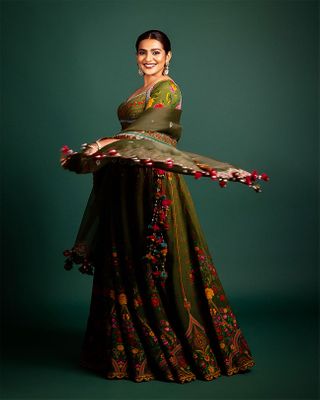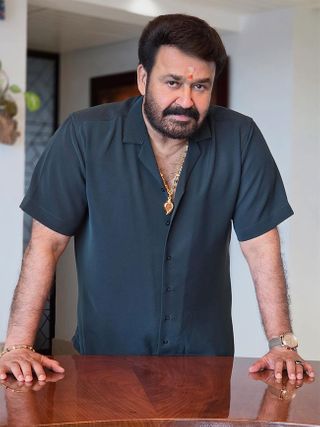Main Meri Patni Aur Woh Movie Review
You have to be there to see how big a small towner's dream is. Unlike the other recent big film "Bunty Aur Babli" about small-town dreams, "Main Meri Patni Aur Who" isn't about getting away, or getting there. It's just about getting even with life without losing one's cool.
Set in Lucknow, and capturing the city in its normal undramatic rhythms of everyday life (the small-town Uttar Pradesh ambience was earlier imaged with intrinsic intimacy in Tigmanshu Dhulia's "Haasil"), "Main Meri Patni..." is remarkably attuned to the tenor of normalcy. Even when drama beckons, the narrative chooses to stay away.
If you have had enough of Mumbai as seen through the hazy lens of exacerbated glamour and gangsterism, then here's a rare chance to escape into the virtues of the basic simplicity of existence, lost to Hindi cinema in the nervous scamper to create larger-than-life images.
Director Chandan Arora, who earlier styled the brackish small-town-wannabe-girl's adventures in Bollywood ("Main Madhuri Dixit Banna Chahti Hoon"), is here on much firmer ground.
Arora's grasp over the grammar of the north Indian middleclass comes across in vivid and often savagely funny details from his protagonist Mithilesh's daily routine. The stopwatch scooter ride to his place of work, the little quirks and foibles that make Mithilesh so endearingly emblematic of non-metropolitan existence, are chalked out in a vivid landscape of sharply drawn images and words.
Jehangir Chowdhary's cinematography and Pankaj Saraswat's dialogues are tangy and piercing.
In the way the camera and the dialogues manoeuvre through the evenly paced narrative, you can almost smell the breath of Lucknow's decadent modernity.
With rationed nostalgia, the director derives inspiration from Basu Chatterjee's "Rajnigandha" to create a disarming metaphor of the common man's insecurities. Rajpal Yadav as the librarian with a complex about his height could be Amol Palekar in Chatterjee's film 30 years ago, wooing Vidya Sinha away from the master-manoeuvrer Dinesh Thakur.
Rajpal's nagging insecurities about his pretty tall wife and the male attention that he thinks she unnecessarily attracts are never turned into pretexts for titillation.
This must be the only sex comedy in the history of Indian cinema that steers clear of the bed. Instead, Arora chooses to dwell in his protagonist's head, creating a wonderful fusion of feeling and fantasy without ever digressing from the chosen path of reality.
We see Mithilesh's domestic domain and spousal reality as he sees it. The wife, in fact, is imagined almost entirely from the outside. Benign and sweet-tempered, oblivious to the demons that plague her husband...until the intelligently staged outburst towards the end.
It's an encouraging comeback to Hindi cinema for Rituparna Sengupta. She's different, quietly graceful and confident in a film that belongs almost entirely to her co-star.
Rajpal Yadav in his author-backed tailor-made role holds back his strange range, uses his histrionic ammunition to fuel rather than fatten the character. Curbed and controlled, he shows some of our matinee idols what getting into a character means. His climactic rooftop sequence with his wife, where he asks her forgiveness, is so heart-warming it almost redefines screen heroism.
The supporting cast, particularly Kay Kay Menon as the man of the world, Varun Bandola as Mithilesh's boisterous buddy and Vinod Nagpal as the uncle, add an authentic lustre to this mellow marital drama, steeped in the ethos of fluid authenticity.
The music (Sanjay Jaipurwale) is incidental but finely tuned to the pitch and ambience of the narrative.
What remains with you is the benignity and sincerity of the presentation. You can't but wish well for these characters. They are as guileless as the creators of this film.



















